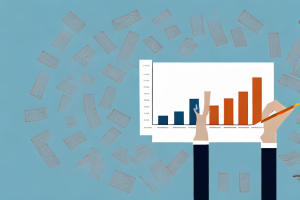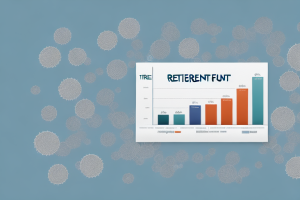Retirement planning is an essential aspect of securing financial stability and peace of mind for the future. One fundamental question that arises during this process is: “How long will 500k last in retirement?” To answer this question comprehensively, it is crucial to consider several factors that can impact the lifespan of your retirement funds. Understanding these factors and implementing proper strategies can help ensure that your savings are sustained throughout your retirement years.
Understanding the 4% rule: Calculating your retirement funds lifespan
One popular method for estimating the duration of your retirement funds is the 4% rule. This rule suggests that you can withdraw 4% of your initial retirement savings each year, adjusted for inflation, while maintaining a high probability of not running out of money. Therefore, with a $500,000 nest egg, you would initially withdraw $20,000 per year. However, keep in mind that the 4% rule assumes a 30-year retirement period and may not be suitable for everyone.
It is important to note that the 4% rule is based on historical market data and may not account for future economic conditions. Market fluctuations and changes in inflation rates can impact the sustainability of your retirement funds. Therefore, it is advisable to regularly reassess your financial situation and adjust your withdrawal rate accordingly.
Additionally, individual circumstances and goals can vary greatly, and the 4% rule may not align with everyone’s retirement plans. Factors such as anticipated healthcare costs, desired lifestyle, and other sources of income should be taken into consideration when determining your withdrawal rate. Consulting with a financial advisor can help you tailor a retirement strategy that suits your specific needs and objectives.
Factors that impact how long your 500k will last in retirement
Several critical factors can influence the longevity of your 500k in retirement. The primary variables include your annual expenses, investment returns, inflation rate, and unexpected costs. Understanding each of these factors and how they interact is vital for making informed financial decisions.
One factor that can impact how long your 500k will last in retirement is your annual expenses. It is important to carefully consider and plan for your expected expenses during retirement, including housing, healthcare, transportation, and leisure activities. By creating a realistic budget and monitoring your spending, you can ensure that your retirement savings are allocated appropriately and can sustain your desired lifestyle.
Another factor to consider is investment returns. The performance of your investment portfolio can greatly affect the longevity of your 500k. It is crucial to diversify your investments and regularly review and adjust your portfolio to maximize potential returns while managing risk. Working with a financial advisor can help you develop an investment strategy that aligns with your goals and risk tolerance.
Estimating your expenses: A key factor in determining retirement fund longevity
Accurately estimating your retirement expenses is a crucial first step in determining how long your 500k will last. Start by evaluating your current spending habits and adjust them considering factors such as healthcare costs, potential travel plans, and hobbies you may wish to pursue during retirement. By creating a comprehensive budget, you can better gauge how much you will need on an annual basis.
One important aspect to consider when estimating your retirement expenses is inflation. Over time, the cost of goods and services tends to increase, which means that the purchasing power of your retirement savings may decrease. It is essential to factor in an inflation rate when calculating your future expenses to ensure that your retirement fund can sustain your lifestyle.
Additionally, unexpected expenses can arise during retirement, such as home repairs, medical emergencies, or changes in family circumstances. It is wise to set aside a contingency fund to cover these unforeseen costs and provide a buffer for any financial surprises that may occur.
Inflation and its effect on the lifespan of your retirement savings
Inflation is another crucial factor to consider when determining how long your 500k will last in retirement. Over time, the purchasing power of your savings will decline due to the rising cost of goods and services. To mitigate the impact of inflation, it is advisable to invest a portion of your retirement funds in assets that have historically outpaced inflation, such as stocks or real estate.
One way to protect your retirement savings from the effects of inflation is by diversifying your investment portfolio. By spreading your investments across different asset classes, such as stocks, bonds, and commodities, you can potentially reduce the impact of inflation on your overall portfolio. This diversification strategy can help ensure that even if one asset class underperforms during periods of high inflation, other assets may provide a buffer against the erosion of purchasing power.
Additionally, it is important to regularly review and adjust your retirement savings strategy to account for changes in inflation rates. As inflation rates fluctuate over time, it is crucial to reassess your investment allocations and make any necessary adjustments to ensure that your retirement savings continue to grow and maintain their purchasing power. Consulting with a financial advisor can be beneficial in navigating the complexities of inflation and developing a long-term retirement savings plan.
Creating a budget to make your 500k last throughout retirement
Creating and sticking to a budget becomes even more crucial during retirement. A well-crafted budget allows you to manage your expenses while ensuring that you do not deplete your savings prematurely. Consider eliminating unnecessary expenses, adjusting your lifestyle if needed, and regularly reviewing and adjusting your budget as circumstances change.
One important aspect of creating a budget for retirement is to factor in potential healthcare costs. As you age, healthcare expenses tend to increase, so it’s essential to allocate a portion of your budget for medical bills, insurance premiums, and any necessary medications or treatments. Additionally, consider exploring long-term care insurance options to protect yourself against the potentially high costs of assisted living or nursing home care in the future.
Maximizing Social Security benefits to stretch your retirement funds
Social Security benefits can be a valuable source of income during retirement. Delaying your claim beyond the eligibility age can result in increased monthly payments. Maximizing your Social Security benefits can help reduce the strain on your retirement savings and potentially extend their lifespan.
One strategy to maximize your Social Security benefits is to carefully consider the timing of your claim. While you can start receiving benefits as early as age 62, your monthly payments will be permanently reduced if you claim before your full retirement age. On the other hand, if you delay your claim until after your full retirement age, your monthly payments will increase by a certain percentage for each year of delay, up until age 70.
Another way to maximize your Social Security benefits is to coordinate your claiming strategy with your spouse, if applicable. Spousal benefits can provide an additional source of income, and there are various strategies to optimize the timing and coordination of both spouses’ claims. For example, one spouse may choose to claim their own benefits early while the other delays their claim to maximize the spousal benefit.
Investing strategies for a longer-lasting retirement nest egg
Investing wisely is crucial for sustaining your retirement savings. Diversification is key to minimizing risk and maximizing returns. Consider a mix of stocks, bonds, mutual funds, and other asset classes to create a well-rounded portfolio that can weather market fluctuations. Consulting a financial advisor can provide valuable guidance in developing an investment strategy suited to your risk tolerance and retirement goals.
One important aspect of investing for a longer-lasting retirement nest egg is to regularly review and rebalance your portfolio. As market conditions change, the allocation of your assets may become imbalanced. By periodically reassessing your investments and making necessary adjustments, you can ensure that your portfolio remains aligned with your long-term goals.
Another factor to consider is the impact of inflation on your retirement savings. Over time, the purchasing power of your money may decrease due to inflation. To combat this, it is important to include investments that have the potential to outpace inflation, such as stocks or real estate. These assets have historically shown the ability to provide higher returns over the long term, helping to preserve the value of your retirement nest egg.
The role of healthcare costs in depleting your 500k savings during retirement
Healthcare costs can significantly impact the lifespan of your retirement savings. As you age, medical expenses tend to increase. It is essential to include healthcare costs in your budget and explore health insurance options, such as Medicare, to mitigate these expenses. Additionally, considering long-term care insurance can provide a safety net for potential future medical needs.
Planning for unexpected expenses to safeguard your retirement funds
Unexpected expenses can arise during retirement, from home repairs to family emergencies. Building an emergency fund separate from your retirement savings can help protect your funds from being depleted in such situations. By having a financial cushion, you can maintain your retirement strategy without jeopardizing your long-term financial security.
How diversifying your investments can protect and extend your savings in retirement
Diversifying your investments is one of the most effective strategies for mitigating risk in retirement. By spreading your investments across different asset classes and sectors, you reduce the likelihood of losing significant portions of your savings due to fluctuations in any single investment. This diversification can protect and extend the lifespan of your 500k in retirement.
The significance of lifestyle choices on the longevity of your 500k in retirement
Your lifestyle choices during retirement can have a substantial impact on the longevity of your savings. Opting for a more modest lifestyle, cutting unnecessary expenses, and practicing frugality can help stretch your retirement funds further. By being mindful of your spending habits and making conscious choices, you can significantly impact how long your 500k will last.
Strategies for generating additional income during retirement to supplement your savings
Supplementing your retirement savings with additional income sources can help alleviate financial pressure and extend the lifespan of your 500k. Consider part-time employment, monetizing hobbies or skills, or leveraging your expertise for consulting. Exploring these opportunities can provide both financial benefits and personal fulfillment during your retirement years.
Calculating withdrawal rates to ensure the longevity of your 500k in retirement
Calculating appropriate withdrawal rates is crucial to ensure that your 500k lasts throughout your retirement. While the 4% rule provides a general guideline, it may not consider your specific circumstances. Assessing factors such as projected longevity, investment performance, and anticipated expenses can help determine a withdrawal rate that suits your unique situation.
The pros and cons of annuities: A potential solution for extending the lifespan of your savings
Annuities are financial products that offer a guaranteed income stream for life. They can be a viable option for extending the lifespan of your savings by providing a fixed income, regardless of market fluctuations. However, it is essential to weigh the pros and cons of annuities before committing. Consider factors such as fees, investment flexibility, and individual preferences when exploring this option.
In conclusion, understanding how long 500k will last in retirement requires careful consideration of various factors. By estimating expenses, considering investment strategies, factoring in unexpected costs, and making informed decisions about lifestyle choices, you can extend the lifespan of your retirement funds. Additionally, regularly reviewing and adjusting your financial plan, consulting with professionals, and staying vigilant about changes in the market can help ensure a secure and prosperous retirement. So start planning today and enjoy a financially stable future.



